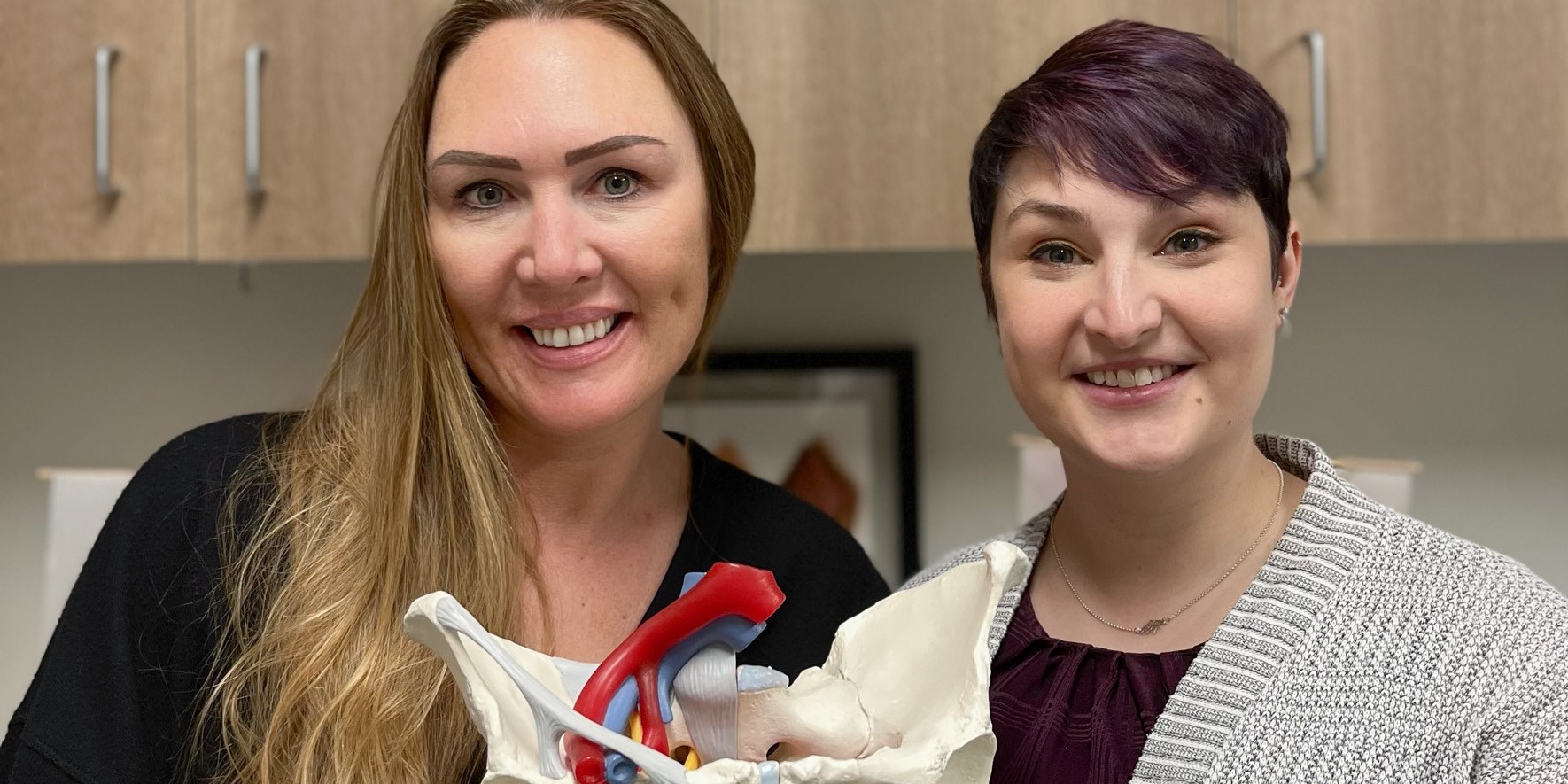Navigating Prostate Cancer Screening: PSA Testing vs. MRI

Prostate cancer remains one of the most commonly diagnosed cancers among men, yet the pathway to effective screening can be fraught with confusion and uncertainty. With varying recommendations from different health organizations and a multitude of testing options available, patients often find themselves unsure about when and how to pursue screening. Two of the screening methods often recommended are the Prostate-Specific Antigen (PSA) test and MRI.
Prostate-Specific Antigen (PSA) Testing
Screening for prostate cancer has been confusing for some patients in terms of what is recommended. Prostate-Specific Antigen (PSA) is used by some providers, but some patients are unsure when to proceed with testing. The US Preventative Services Task CDC recommends that the use of PSA screening between in men aged 55 to 69 should be an individual choice, however, it should not be performed in men over the age of 70. Other websites recommend having a discussion for screening between individuals and their medical provider, which may include PSA testing, starting at 50, earlier if there is a risk present.
Some of the issues for screening for prostate cancer with PSA include false positives that require additional testing and biopsy, overdiagnosis, and overtreatment. The treatment for prostate cancer has a lot of side effects including urinary incontinence, erectile dysfunction, and bowel issues. This is concerning when quality of life can be greatly influenced by these side effects.
MRI
With improved technology, MRI is emerging as a nice screening tool for prostate cancer. MRI has shown promising results. MRI does identify cancer before it is too advanced. It also is decreasing the number of patients that are diagnosed with clinically insignificant cancer, which means fewer patients are being overtreated. According to Hugosoon et al in 2024, using MRI to decide if a biopsy should be performed “eliminated more than half of diagnoses of clinically insignificant prostate cancer,” while the risk of being diagnosed at an incurable stage was “very low.”1 The use of MRI is more than for diagnosis at the pre-biopsy stage but is progressing to screening, active surveillance, clinical staging, and detection of recurrent disease. 2 Artificial intelligence (AI) based algorithms are being explored for the use of detecting and characterizing prostate cancer on an MRI. These are showing promising results as well, particularly with decreasing false positives.3
As the landscape of prostate cancer screening evolves, it is crucial for patients and healthcare providers alike to remain informed and engaged in discussions about the best approaches to diagnosis and treatment. The decision to undergo screening should not be taken lightly; it requires a thorough understanding of the benefits and risks associated with various testing methods, including PSA testing and the promising role of MRI.
In an era where technology, including artificial intelligence, is reshaping how we approach cancer detection, it’s imperative to remain proactive and adaptable. By prioritizing education and open communication, we can ensure that the journey through prostate cancer screening and treatment is navigated with confidence and clarity.
Join us in Oncology of the Pelvic Floor Level 1 (OPF1) to receive an introduction to oncology of the pelvic floor, or Oncology of the Pelvic Floor Level 2A (OPF2A) for a deeper understanding of prostate cancer and empower yourself or your patients with the knowledge needed for informed health choices. In OPF1, we address issues that are commonly seen in a patient who has been diagnosed with cancer such as cardiotoxicity, peripheral neuropathy, and radiation fibrosis while in OPF2A, we cover topics of prostate cancer, testicular and penile cancers, as well as colorectal and anal cancers. You will learn the latest diagnostic testing for each type of cancer as well as medical treatment and how that treatment can influence our patients’ bodies. Hands-on treatment techniques that can be used in the rehabilitation process are learned. Join us to learn more about prostate cancer and more!
Oncology of the Pelvic Floor Level 1 is next offered January 11-12, 2025.
Oncology of the Pelvic Floor Level 2A is next offered March 8-9, 2025.
Resources
- Hugosson J, Godtman RA, Wallstrom J, et al. (2024). Results after four years of screening for prostate cancer with PSA and MRI. New England Journal of Medicine. 391; 1083-1095.
- Trecarten S, Sunnapwar AG, Clarke GD, Liss MA. (2024). Chapter Three- Prostate MRI for the detection of clinically significant prostate cancer: update and future directions. Advances in Cancer Research. Vol 161. 71-118.
- Roubiere O, Jaouen T, Baseilhac P, et al. (2023). Artificial intelligence algorithms aimed at characterizing or detecting prostate cancer on MRI: How accurate are they when tested on independent cohorts?- A systematic review. Diagnostic and Interventional Imaging. Vol 104 (5): 221-234.
AUTHOR BIO:
Allison Ariail, PT, DPT, CLT-LANA, BCB-PMD, PRPC
 Allison Ariail has been a physical therapist since 1999. She graduated with a BS in physical therapy from the University of Florida and earned a Doctor of Physical Therapy from Boston University in 2007. Also in 2007, Dr. Ariail qualified as a Certified Lymphatic Therapist. She became board-certified by the Lymphology Association of North America in 2011 and board-certified in Biofeedback Pelvic Muscle Dysfunction by the Biofeedback Certification International Alliance in 2012. In 2014, Allison earned her board certification as a Pelvic Rehabilitation Practitioner. Allison specializes in the treatment of the pelvic ring and back using manual therapy and ultrasound imaging for instruction in a stabilization program. She also specializes in women’s and men’s health including conditions of chronic pelvic pain, bowel and bladder disorders, and coccyx pain. Lastly, Allison has a passion for helping oncology patients, particularly gynecological, urological, and head and neck cancer patients.
Allison Ariail has been a physical therapist since 1999. She graduated with a BS in physical therapy from the University of Florida and earned a Doctor of Physical Therapy from Boston University in 2007. Also in 2007, Dr. Ariail qualified as a Certified Lymphatic Therapist. She became board-certified by the Lymphology Association of North America in 2011 and board-certified in Biofeedback Pelvic Muscle Dysfunction by the Biofeedback Certification International Alliance in 2012. In 2014, Allison earned her board certification as a Pelvic Rehabilitation Practitioner. Allison specializes in the treatment of the pelvic ring and back using manual therapy and ultrasound imaging for instruction in a stabilization program. She also specializes in women’s and men’s health including conditions of chronic pelvic pain, bowel and bladder disorders, and coccyx pain. Lastly, Allison has a passion for helping oncology patients, particularly gynecological, urological, and head and neck cancer patients.
In 2009, Allison collaborated with the Primal Pictures team for the release of the Pelvic Floor Disorders program. Allison's publications include: “The Use of Transabdominal Ultrasound Imaging in Retraining the Pelvic-Floor Muscles of a Woman Postpartum.” Physical Therapy. Vol. 88, No. 10, October 2008, pp 1208-1217. (PMID: 18772276), “Beyond the Abstract” for Urotoday.com in October 2008, “Posters to Go” from APTA combined section meeting poster presentation in February 2009 and 2013. In 2016, Allison co-authored a chapter in “Healing in Urology: Clinical Guidebook to Herbal and Alternative Therapies.”
Allison works in the Denver metro area in her practice, Inspire Physical Therapy and Wellness, where she works in a more holistic setting than traditional therapy clinics. In addition to instructing Herman & Wallace on pelvic floor-related topics, Allison lectures nationally on lymphedema, cancer-related changes to the pelvic floor, and the sacroiliac joint. Allison serves as a consultant to medical companies, and physicians.
By accepting you will be accessing a service provided by a third-party external to https://hermanwallace.com/






































